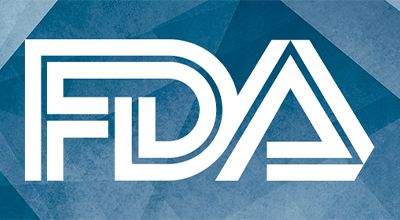FDA Delivers Complete Response Letter to Denileukin Diftitox for Patients With R/R Cutaneous T-Cell Lymphoma
The FDA has issued a complete response letter to the biologics license application for denileukin diftitox.
FDA Delivers Complete Response Letter to Denileukin Diftitox for Patients With R/R Cutaneous T-Cell Lymphoma

The FDA has delivered a complete response letter to Citius Pharmaceuticals, Inc. regarding the biologics license application (BLA) seeking approval for denileukin diftitox (Lymphir; I/ONTAK). The manufacturers had sought the agent’s approval for patients with relapsed or refractory cutaneous T-cell lymphoma (CTCL) following at least 1 prior systemic therapy.1
For Citius to move forward with denileukin diftitox, they must enhance the product testing by using stronger controls, according to the letter. Of note, the FDA did not cite any concerns related to the safety of the agent or the proposed prescribing information.
"We appreciate the FDA's expeditious review of our application. We intend to provide additional data and remain fully engaged with the FDA as we continue to work toward approval,” Leonard Mazur, chairman and chief executive officer of Citius Pharmaceuticals, Inc., stated in a press release. “We remain confident in the potential of [denileukin diftitox] to become an important addition to the treatment landscape for patients with relapsed or refractory CTCL and make a meaningful difference in their lives.”
Denileukin diftitox is a recombinant fusion protein that functions by combining the interleukin-2 (IL-2) receptor binding domain with diphtheria toxin fragments. Specifically, the agent binds to the IL-2 receptors on the cell’s surface, causing the diphtheria toxin fragment to inhibit protein synthesis.
The manufacturers had announced that they would be filing the BLA after topline data from the phase 3 I/ONTAK (E777) study demonstrated that the agent elicited an objective response rate of 36.2% (95% CI, 25.0%-48.7%) among patients with CTCL, according to an independent review committee primary assessment of the efficacy analysis set (n = 69).2 The complete and partial response rates (95% CI) were 25.0% and 48.7%, respectively, and the median duration of response was 6.5 months (range, 3.0-23.5). The median time to response was 1.41 months. Overall, investigators determined that the clinical benefit rate was 49.3%.2
The most common adverse events were nausea, fatigue, increased alanine aminotransferase, chills, and peripheral oedema. No new safety concerns were identified.
Moving forward, Citius will continue to research denileukin diftitox for this patient population. Moreover, 2 additional trials designed to assess the potential safety and efficacy of the agent have been launched. The first will evaluate denileukin diftitox in combination with pembrolizumab (Keytruda) in a population of patients with recurrent or metastatic solid tumors (NCT05200559). The second trial will assess the agent in patients with relapsed/refractory B-cell lymphomas who are about to undergo lymphodepletion chemotherapy and chimeric antigen receptor T-cell therapies and who are believed to have a low likelihood of achieving a response from tisagenlecleucel (Kymriah) alone (NCT04855253).3
References
- Citius Pharmaceuticals, Inc. receives a complete response letter from the US Food and Drug Administration (FDA) for Lymphir (denileukin diftitox) for the treatment of patients with relapsed or refractory cutaneous T-cell lymphoma. News release. Citius Pharmaceuticals, Inc. July 29, 2023. Accessed August 1, 2023. https://citiuspharma.com/investors/news-media/news/release-details/2023/Citius-Pharmaceuticals-Inc.-Receives-a-Complete-Response-Letter-from-the-U.S.-Food-and-Drug-Administration-FDA-for-LYMPHIR-Denileukin-Diftitox-for-the-Treatment-of-Patients-with-Relapsed-or-Refractory-Cutaneous-T-Cell-Lymphoma/default.aspx
- Citius Pharmaceuticals reports topline data from the pivotal phase 3 study of cancer immunotherapy I/ONTAK (E7777) for the treatment of persistent or recurrent cutaneous T-cell lymphoma (CTCL) in support of BLA submission. News release. Citius Pharmaceuticals, Inc. April 6, 2022. Accessed August 1, 2023. https://citiuspharma.com/investors/news-media/news/release-details/2022/Citius-Pharmaceuticals-Reports-Topline-Data-from-the-Pivotal-Phase-3-Study-of-Cancer-Immunotherapy-IONTAK-E7777-for-the-Treatment-of-Persistent-or-Recurrent-Cutaneous-T-Cell-Lymphoma-CTCL-in-Support-of-BLA-Submission/default.aspx
- Pipeline. Citius Pharmaceuticals, Inc. Accessed August 1, 2023. https://citiuspharma.com/pipeline/I-ONTAK/default.aspx



